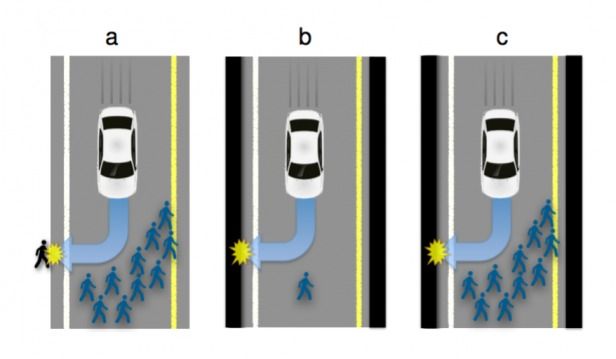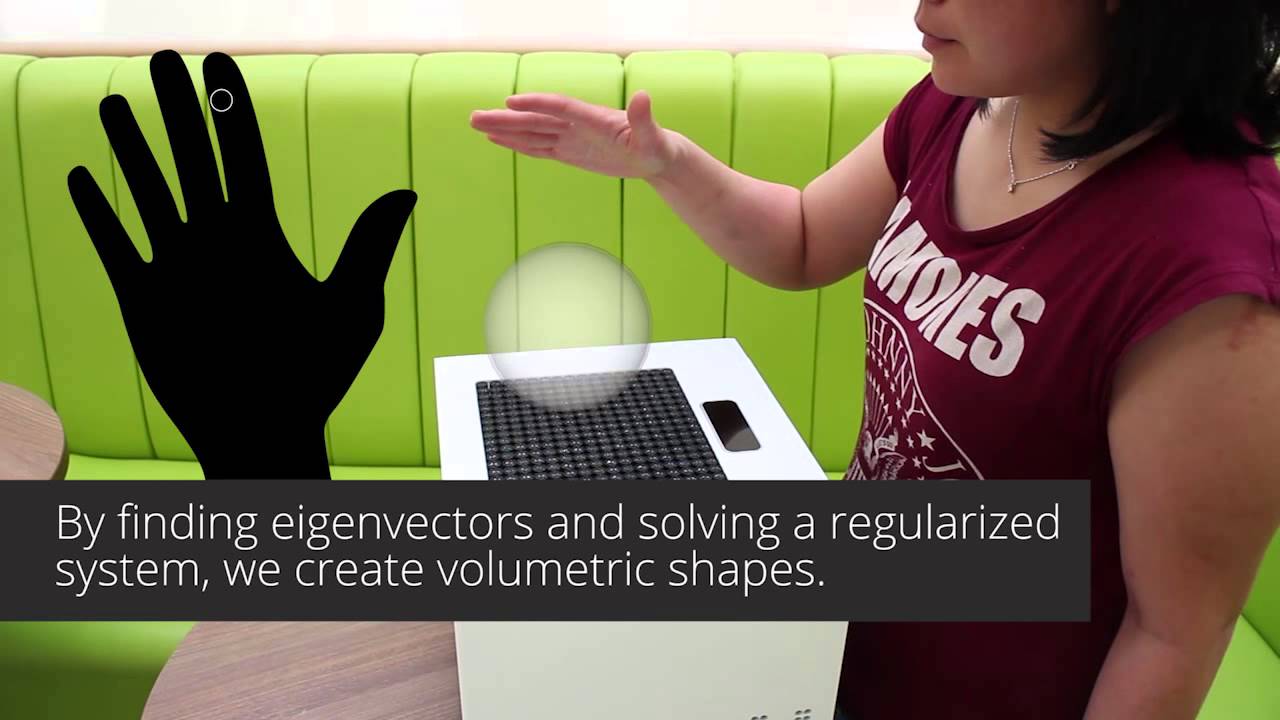But we could still have one weakness.



“Technology is finally catching up with Landmark Entertainment Group’s big ideas. The global entertainment design firm announced Thursday that it is collaborating with Pavilion of Me to create a virtual reality experience called the Virtual World’s Fair that will launch in 2017.”

Official video for PostHuman — produced by Colliculi Productions.
Animated sci-fi thriller short film featuring the voice of Tricia Helfer (Battlestar Galactica). Directed by Cole Drumb. Produced by Jennifer Wai-Yin Luk.
Production company: Colliculi Productions.
Animation studio: Humouring The Fates.
Voice of Kali: Tricia Helfer.
Voice of Terrence: Ulric Dihle.
Original Music: Neill Sanford Livingston.
Post Production Sound: Kid Dropper Sound.
Final Post Production Sound: Bad Animals.
Final Video Post Production: Lightpress.
Set in an adrenalized future of espionage, assassins, and out of control super science, PostHuman follows a genius hacker and his dog as they help an enigmatic young woman to free the remaining test subject of a black ops ESP test lab.
http://posthumanthemovie.com/
https://www.facebook.com/PostHumanTheMovie
https://twitter.com/PostHumanFilm
https://twitter.com/JenWLuk
https://twitter.com/ColeDrumb
http://www.imdb.com/title/tt2091950/
http://posthumanthemovie.tumblr.com/
Awards:
Screamfest 2012 — Best Animated Short.
Maelstrom International Fantastic Film Festival 2012 — Best Animation Short.
Arizona Underground Film Festival 2012 — Best Animation Short.
Couch Fest Films 2012 — Best Sci-Fi Animation.
Ask just about anyone on the street to describe artificial intelligence and odds are, they’ll describe something resembling the futuristic science fiction robot they’ve seen in movies and television shows. However, according to Mathematician, Linguist and Artificial Intelligence Researcher Dr. András Kornai, artificial intelligence is a reality right now, and its impact can be seen every day.
“I’d say 35 percent of the total commerce taking place on Wall Street (right now) is driven by algorithms and it’s no longer driven by humans,” Kornai said. “This is not science fiction. (Artificial intelligence) is with us today.”
What we’ve seen so far in the application of algorithm-based artificial intelligence in the financial sector is just the tip of the iceberg, Kornai said. In fact, you don’t even have to own stock to be affected by it.
“I have designed algorithms that will (determine) your creditworthiness, meaning your creditworthiness is now determined by an algorithm,” he said. “We have substituted human-decision making capabilities in favor of better algorithms to pursue this, and we have given up a huge area of human competence, and money is just one aspect of it.”
Kornai points to advances in algorithm-based medical diagnostics, autonomous cars and military technology as some other areas where artificial intelligence is already at work and poised for further growth. While that growth is presented as a good thing, he believes the subtle infiltration of AI has many people missing the larger picture.
“We are seeing an uptick in medical decisions by algorithms and I’m not opposed to this, as it’s important to have the best possible information in the medical world. And in 10 or 15 years autonomous vehicles will be a big deal,” Kornai said. “In military technology, drones are generally human controlled, but there is intense research toward autonomous ground or air vehicles that will work even if someone is trying to cut off their communication. This is not the future, this is here now.”
According to Kornai, since algorithms are based on statistics, the problem with algorithm-based advances in those areas is the level of error that is inherent to the system. That built-in error may not be able to cause bodily harm, he said, but it can still cause havoc to humanity as a whole.
“A certain amount of error is built into the system in every level of AI. Things work on a statistical basis and they have errors but, on the whole, that’s innocent,” he said. “Algorithms are not capable of hurting people directly. But once it comes to money or it comes to your health or your legal standing, (the potential for errors) is becoming increasingly serious.”
In spite of most people’s image of the future of artificial intelligence, that danger is significantly different than the perils depicted on the big screen, Kornai said. To illustrate that point, he highlighted the gap between algorithmic AI and the state of robotics. While technology has already developed a chess algorithm that can beat the best chess players in the world, a ping-pong playing robot that can beat the world’s best table tennis player has yet to materialize.
“The primary worry is everyday, ubiquitous algorithms, the kind of algorithms that are already around us, posing huge damage,” Kornai said. “This isn’t the Terminator coming along and killing humans. That’s more science fictional.”
Looking to the future, Kornai sees AI making the biggest inroads in the business world. Again, he noted that use of those everyday algorithms may not be widely noticed, but their impact will be significant.
“In the business world today, it’s much easier to start a company and those companies will increasingly be driven by AI,” he said. “Eventually, AI will play a bigger role in the boardroom. It may not be visible to the man on the street, but it will be very visible to the Fortune 500.”
That said, however, there are still broader risks ahead as AI advances, and Kornai said he generally agrees with the concerns that have been voiced of late by Hawking, Gates, Musk and others. Those perils might not jibe with Hollywood’s idea of them, but the effects will still be notable.
“These guys see what’s going on and are doing some far-sighted (thinking). Far-sighted is not science fictional,” Kornai said. “Far-sighted is thinking ahead maybe 10, 15 or 25 years ahead. We’re not talking about affecting our grandchildren, but things that will affect us and increasingly affect our children and grandchildren.”

Kamaz’s new driverless trucks, already undergoing extensive testing, is set to go on a tour of European Russia. Beginning next year, testing will begin on the Moscow-St. Petersburg motorway. After that, the company plans to take its creation on a real cross-continental road trip, from Helsinki to Beijing.
Some nice photos of odd-looking components.
Germany’s new stellarator was “hell on Earth” to build, but it will be worth it—if it works.

Self-driving cars are already cruising the streets. But before they can become widespread, carmakers must solve an impossible ethical dilemma of algorithmic morality.

One of the oddest predictions of quantum theory — that a system can’t change while you’re watching it — has been confirmed in an experiment by physicists.

The EU’s top court ruled Thursday that the exchange of Bitcoin and other virtual currencies should be treated just like traditional money in Europe and not incur any sales tax.

Haptics is a growing field that aims to allow our bodies to control and ultimately ‘feel’ our virtual identity. Instead of using the theorized mechanism of a neural computer link, haptic tech attaches sensors and stimuli to our body. A report by research firm Markets and Markets thinks haptic technology, which could soon include something like a glove that let’s you move a hand in cyberspace, will be worth 30 billion by 2020.
Haptic technology, also known as kinesthetic communication, sounds like something out of science fiction. But products, like the vibrating cell phone, have been out for decades. And there’s more advanced systems on the way. That’s partly because of another hyped field: virtual reality. With pioneering virtual reality headsets like the Oculus Rift poised for release next year, the question becomes: How to make this experience even more immersive.
The tech is based on our sense of touch, a sensation that philosopher John Locke believed to be the most undeniable of all human senses. We believe something is real by touching it, a philosophy that haptic technology follows.